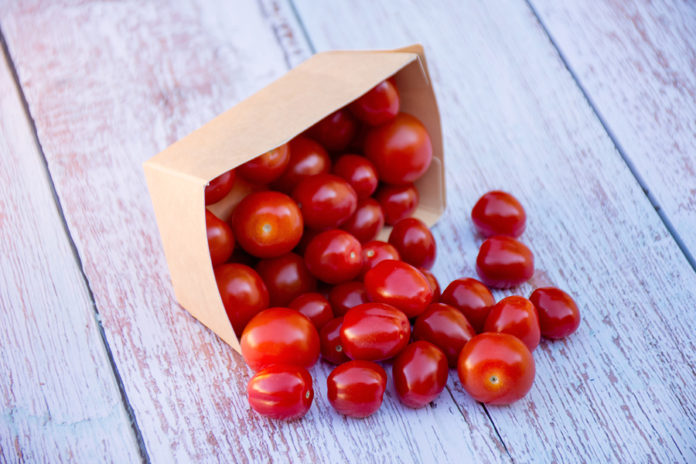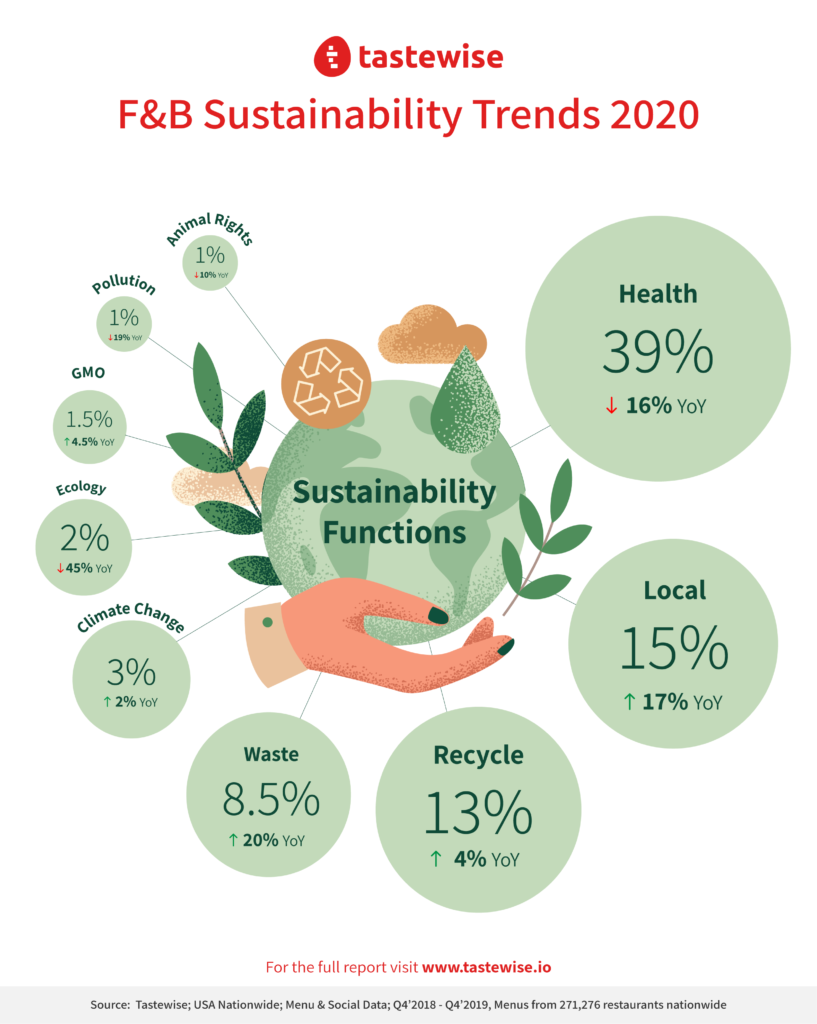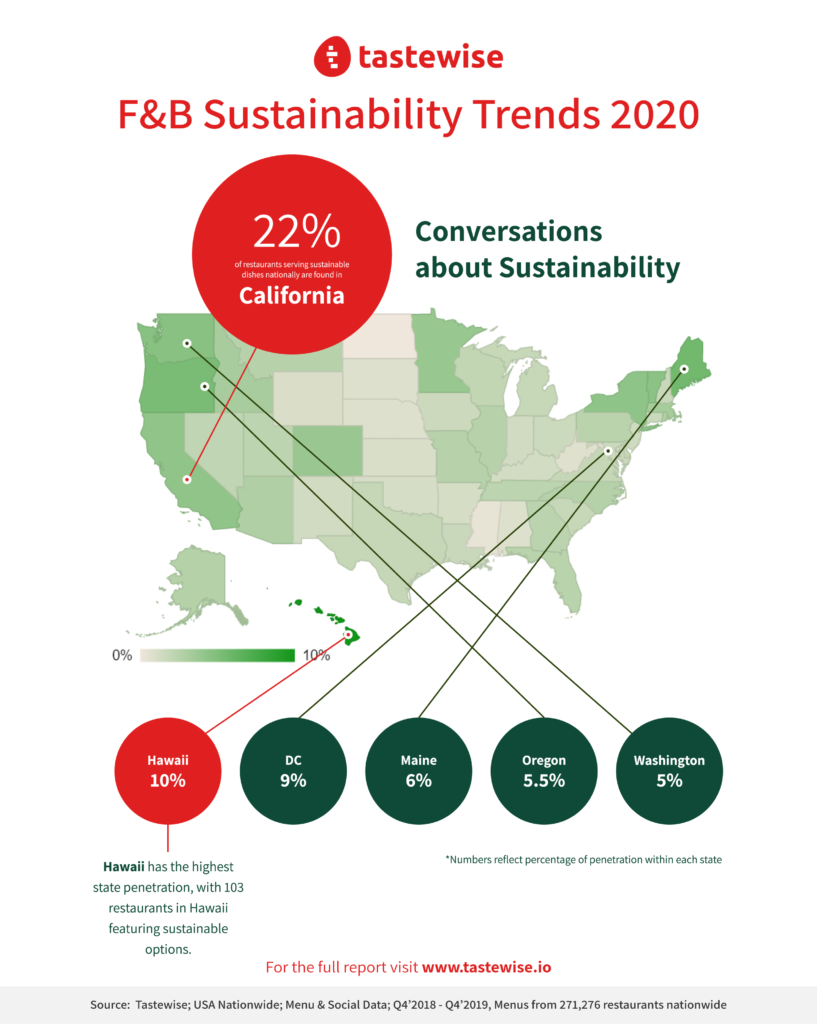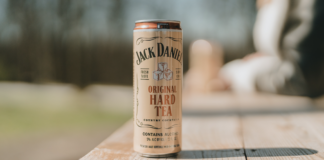
23% more consumers prioritize sustainability in their food choices now compared to a year ago, according to a new report from Tastewise. The company uses artificial intelligence to mine online data, including social media conversations, restaurant menus, and home recipes, to predict future food trends.
Read our interview with Tastewise CEO Alon Chen.
The top reason consumers are interested in sustainability is for their health, followed by environmental considerations. However, there is some evidence that this pattern might be shifting. While 39% of sustainability conversations are related to health, this number is down 16% from last year. Over the same time, conversations about local sourcing, recycling, and waste, have increased.
In terms of specialty diets related to sustainable eating, vegan/plant-based diets take the top spot. Even keto dieters are showing interest in vegan options, though they’re still more likely to talk about sustainable meat. Again, health is the primary driver of these diet-focused sustainability conversations.
As for where these conversations are happening, it’s primarily on the coasts. California accounts for 22% of U.S. restaurants serving sustainable dishes, followed by Hawaii, Washington, DC, Maine, Oregon, and Washington.
Finally, the snacking trend is going more sustainable as well. Tastewise reports that data related to “on the go” food and beverage items grew by 31% in the sustainability category.
Overall, the latest Tastewise analysis reaffirms that sustainability is one of today’s hottest consumer trends. It also suggests strategies to help food processors capitalize on this trend, for example, by emphasizing health benefits, providing sustainable protein sources, and adopting sustainable packaging.









